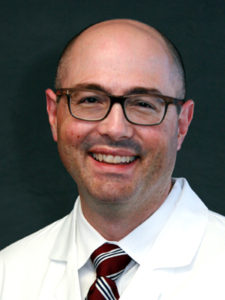
If it’s time to gather for the ACR/ARHP Annual Meeting, it’s also time to assess the annual changes to Medicare and the Medicare Access and CHIP Reauthorization Act (MACRA), both of which cast long shadows on the practice of rheumatology.
“MACRA is constantly changing, as are Medicare provisions that affect rheumatologists,” said Angus B. Worthing, MD, a private practice rheumatologist and Clinical Assistant Professor of Medicine at Georgetown University Medical Center, Washington, DC, and Chair of the ACR Government Affairs Committee. “It is critical to stay informed in order to stay successful in practice.”
Dr. Worthing will kick off an ACR symposium Sustain Your Practice: 2018 Medicare Update on MACRA & APMs on Sunday from 9:00 – 10:00 am in Room W183c.
MACRA created two pathways for practices to demonstrate and improve quality. The Merit-Based Incentive Payment System (MIPS) is currently the only pathway available to rheumatology practices. The alternative payment model (APM) pathway requires the creation of a specific practice and payment model that must be approved by federal regulators. The ACR is moving forward on both pathways.
Preliminary data shows that about half of the participants in the Rheumatology Informatics System for Effectiveness (RISE)Registry used it to meet or exceed the exceptional performance threshold for MIPS, Dr. Worthing reported. Janell Martin, Director of Registry Operations for the College, will explore the utility of RISE and ways ACR members can use the registry to boost their own quality scores under MACRA.
The College is also creating an APM for rheumatoid arthritis. Once approved, the RA APM will serve as a model for other disease-specific APMs.

“Our biggest single task at this time is gathering practice-specific financial data to create a viable financial model for the APM and rheumatology practices,” said Kwas Huston, MD, a Clinical Assistant Professor of Rheumatology at the University of Missouri-Kansas City School of Medicine, Kansas City, MO.
“We are looking at the cost of care in terms of all the different charges and services for different categories of patients based on disease activity, comorbidities, and where they are in RA treatment to see where payment rates should be in the model. The next step is to anticipate how changes in the model will affect the resources needed to care for patients with RA.”
Best practices include expanded patient education, shared decision making, reaching out to patients between visits, and more non-face-to-face care. That will mean structural changes and additional personnel for some practices.
ACR’s task force is working on two fronts, Dr. Huston said. One is creating and validating the APM.
The second is creating a toolkit to help rheumatologists evaluate APM. The toolkit will enable practices to review their practice data and predict how the APM will affect staffing, operations, revenues, and other practice parameters before signing up.
Dr. Worthing will explore the changes to MACRA for 2018 and 2019. He will also review the proposed changes to Medicare’s Physician Fee Schedule for next year. Evaluation and management code changes promise to reduce documentation and paperwork but will also significantly reduce reimbursement.
“This reduced documentation does not make up for the reimbursement cuts,” Dr. Worthing said.
The College has been active on both Capitol Hill and with the Centers for Medicare and Medicaid Services to advocate for rheumatology-friendly changes to MACRA and Medicare. Individual rheumatologists also have an important advocacy role to play in the regulatory arena.

“The ACR wants members to know that they can and should reach out to their members of Congress on important issues,” said Kayla L. Amodeo, PhD, ACR’s Director of Regulatory Affairs. “They may not realize that they have the same right and opportunity to be heard at the regulatory level. If there are elements in proposed regulations that you don’t like or that will pose burdens, those are the things regulators need to hear about.”
The College provides concise information about proposed rules and regulations and how proposals will affect reimbursement, patient access, and treatment choices.
“We provide, through our legislative action center, opportunities to interact with regulatory agencies,” Dr. Amodeo said. “These rules and regulations affect the ways you practice medicine as well as your reimbursement. It is vital that you be involved and make your voice heard at the regulatory level.”
